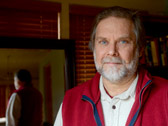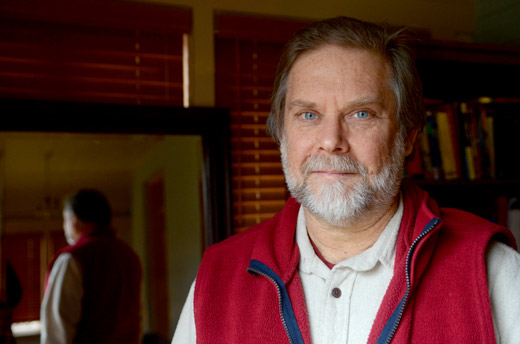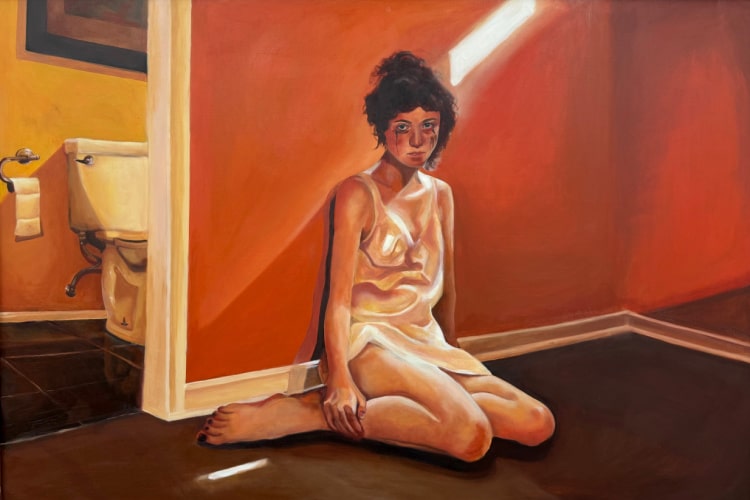Dr. David Loy
Dr. David Loy is an author and teacher in the Sanbo Kyodan lineage of Japanese Zen Buddhism. He is the past Besl Family Chair of Ethics/Religion & Society at Xavier University.

 Dr. David Loy is an authorized teacher in Sanbo Kyodan lineage of Japanese Zen Buddhism. Loy received an M.A. in Asian philosophy from the University of Hawaii in 1975, and his Ph.D. in philosophy in 1984 from the National University of Singapore. In 1984 Loy moved to Kamakura, Japan to continue Zen practice. Five years ago, Loy and his wife left Japan for him to take up the Besl Family Chair of Ethics/Religion & Society at Xavier University. Loy is back in town teaching a four part course in Northside which will consist of an overview of the Zen Tradition, its teachings as well as an introduction to Zen meditation.
Dr. David Loy is an authorized teacher in Sanbo Kyodan lineage of Japanese Zen Buddhism. Loy received an M.A. in Asian philosophy from the University of Hawaii in 1975, and his Ph.D. in philosophy in 1984 from the National University of Singapore. In 1984 Loy moved to Kamakura, Japan to continue Zen practice. Five years ago, Loy and his wife left Japan for him to take up the Besl Family Chair of Ethics/Religion & Society at Xavier University. Loy is back in town teaching a four part course in Northside which will consist of an overview of the Zen Tradition, its teachings as well as an introduction to Zen meditation.
***
Q: You’ve been teaching at Xavier for the last five years.
A: I held the Besl Family Chair of Ethics/Religion & Society, a visiting position that ended in September last year.
Q: Some people might be surprised to find a Catholic University , in such a conservative city, hosting a Buddhist scholar.
A: I’ve found Xavier’s ERS (Ethics/Religion and Society) program to be very open-minded. There’s a tradition of looking outside mainstream Christian thought and of also considering Christianity in relation to other religious traditions including Buddhism.
For instance, Xavier for many years hosted Roshi Keido Fukushima, abbot of Tofuku-ji in Kyoto, Japan , who held a yearly Zen Retreat at the University. Former Xavier Religion Professor Paul Knitter published a book in 2009 titled “Without Buddhism I Could Not Be A Christian” which was very favorably reviewed by the New York Times. The University does need an Asian Studies department, but I’m confident that will develop with time.
When I applied for the Besl Chair we’d never even been to Ohio , let alone Cincinnati ; but we have been pleasantly surprised by the very rich cultural scene, especially in terms of music.
Q: When you look back on the five years you’ve spent here, what is your impression of the city in terms of religious and philosophical diversity?
A: The diversity is here, but in some ways it’s pretty thin. With Buddhism for example, there are a number of different Dharma Centers: in addition to the Dharma Center in Northside, there’s a Tibetan Center , a Sinhalese Temple , a Korean Zen Center, and so forth. But the various Buddhist groups tend to be small, and they don’t interact very much. There are some visiting teachers, especially Tibetan and Zen. [Zen teacher] Daniel Terragno visits twice a year now, offering retreats at Grailville, (in Loveland ), and Ama Samy visits once a year from India . He is a Dharma brother since we were fellow practitioners at the Sanun Zendo in Kamakura for several years.
Q:There are a fair number of Buddhists in America who are concerned with promoting social justice?
A: Yes. One of the important developments in modern Buddhism, especially in the West, has been what is sometimes called Socially Engaged Buddhism…I think that the role of socially engaged Buddhism is not to create a new movement but to play a role within the peace and justice movement that’s already there. So locally, for example, we have the IJPC, we don’t need to compete with them, but to work together. I don’t think engaged Buddhism is about creating new movements; but, rather about adding our voice to the choir. One can also work within existing institutions, for instance, on Wednesday mornings I lead a meditation and Buddhist discussion group at the men’s prison in Lebanon.
Q: Is this course intended for practicing Buddhist only or can non-practitioners get something out of it?
A: It’s open to everyone interested. There are many positive benefits which flow from meditation and one does not have to be a practicing Buddhist to benefit. I’ve also found that learning about other religions serves to teach one more about one’s own.
Photography by Scott Beseler.














